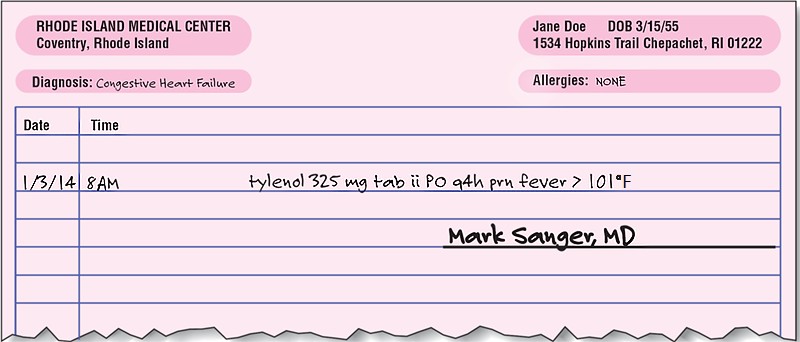A parent calls the after-hours clinic nurse's line and describes a bulging mass in his 6-month-old son's scrotal area that used to disappear when the child was quiet. Now the mass is constantly present. What action by the nurse is the most appropriate?
A.
Ask the parent to call in the morning to make an appointment.
B.
Have the father withhold all feedings for 24 hours.
C.
Instruct the father to take the child to an emergency department.
D.
Reassure the father the condition is benign unless bloody diarrhea occurs.
ANS: C
This child has signs of an incarcerated hernia, which is a hernia that cannot be returned to the abdominal cavity. This can lead to strangulation or necrosis of the bowel if not treated promptly. Because it is after hours, the nurse should instruct the father to take the child to an emergency department for treatment. Waiting to call for an appointment in the morning increases the risk of complications. Holding feedings and bloody diarrhea are not related to this condition.
You might also like to view...
The preceptor is working with a new nurse to provide care for a patient with a new tracheostomy
Which actions by the new nurse indicate need for additional teaching about the procedure? (Select all that apply.) a. The outer cannula is cleaned with the brush and half-strength H2O2. b. The new tracheostomy holder is secured before the old soiled one is removed. c. A Yankauer suction catheter is used to remove secretions from the patient's mouth. d. Sterile gloves are applied before the soiled dressing is removed from the tracheostomy. e. Half-strength H2O2 is used to remove crusted secretions around the tracheostomy site. f. Pain medication is administered to the patient prior to suctioning.
The nurse who organizes screenings for employees, assesses the work environment for hazards, and teaches health-promoting activities is employed in the field of:
a. infection control. b. occupational health. c. informatics. d. transportation specialization.
All proteins are composed of:
1. Amino acids 2. Hormones 3. Antibody 4. Enzymes
How often can the patient be given the Tylenol, assuming her fever remains above 101°F? 
A. every 4 hours B. once a day at 8 a.m. C. once only, because no refills are specified D. four times a day